
Painting © 2004 Loz
Arkle
Website
© Copyright 2000-2011 Alan White - All
Rights Reserved
Site optimised for Microsoft Internet Explorer
Early Blues Interview
|
|
After their triumphant performance at Maryport Blues Festival in 2007, The Holmes Brothers were warmly welcomed back in 2010. I was privileged to spend some time with them just after their set.
Wendell: For me, it was growing up in Calvery Baptist Church in Christchurch, Virginia. My brother and I played for the youth choirs, and old people and everybody. We could play very little but nobody else could play anything, so we had all the gigs. We played in our cousin’s juke joint on Saturday nights and the church on Sunday. Alan: Did you always want to become musicians? Wendell: Absolutely - in the blood. We used to play a game called Nightclub. Alan: Did you parents encourage you? Wendell: Absolutely! Which is very rare. I have daughters and they can both sing. I don’t discourage them but I don’t push them either. It’s such a tricky risky business. I tell people that the best entertainers I know have never made a quarter. But we were fortunate that our parents did encourage us. Alan: Popsy, how did you first meet up with Wendell and Sherman? Popsy: There used to be a club in the Bronx called the Opus Lounge and I was there one night the band there said that their drummer was leaving and they needed a drummer. So I said, “I can play some drums and I can sing too!”. They said, “No, you’re lying. Drummers don't sing and play drums”. So I did and we’ve been together ever since. Alan: What kind of material did you play in the early days?
Alan: You moved from Virginia to play in the clubs of Harlem. Tell me about those early days. Wendell: Well, we played in Harlem and all over New York but our biggest break came when we went from uptown to downtown to Greenwich Village and we played in a lot of clubs such as Dan Lynch's, Mondo Cane and Chicago Blues. We played the whole tri-state area then, New York, New Jersey, Connecticut. We always worked. Alan: During the 90's you had five 'critically acclaimed' albums released on Rounder and even starred in the motion picture 'Lotto Land', plus the album of the same name on the Canadian Stony Plain label; how did appearing on the silver screen come about? Wendell: One of our friends had another friend who was making a movie and they needed a guy to play the part of a part-time musician and they thought it was easier to get me to say a few lines because I already play the guitar. Plus my brother was in it too. It was a great opportunity for us. Our first time in the movies – and it seems like our last time. Sherman: And we did the sound track too. Alan: Back in 2001 you had the album, Speaking in Tongues, and then Simple Truths in 2004, and I believe your friend Joan Osborne was involved in those.
Alan: Your latest album 'Feed My Soul' is said to be your most satisfying album of your career and is about triumphing over adversity, could you tell me a little about the background to the album and the inspiration and beliefs upon which the album was formed. Wendell: In 2008 I went through a bout of bladder cancer so it gave me a lot of time to write new songs when I was taking that chemo and radiation and everything. So it inspired me to write songs, speaking about my wife and my family, my brothers here, all supporting me and getting through that crisis with me, so it all stems from that. Alan: Who would you say has influenced you in your music writing? Wendell: I don’t know that there’s really been any influences. I just write about what’s around me.
Wendell: Undescribable!! Alan: I guess I deserved that! You also performed for President Bill Clinton. How did that come about? Wendell: We had a friend by the name of Andy Breslow who worked in Clinton’s campaign who was also instrumental in getting us our first album with Rounder, so he got us in there. Alan: Are there any particular songs that you play that have special meaning to you? Sherman: All of the songs have a special meaning because we try as a team to pick songs that are meaningful. But Amazing Grace is one that means a lot to a lot of people. Some people told me today that they were crying and I said that’s a good thing, The method is working. Alan: Again to quote, you’ve been “serving up a gumbo of gospel, blues, country, funk, reggae, funk, soul and r ‘n’ b for over 30 years.” How do you see the future of this music? Sherman: This type of music will go on and on and on. Good music, like old soldiers, they never die. I like to think that young people will take it up and advance it and it will be in the evolutionary cycle and get better and better and better. Alan: You are currently on a European tour and going to Canada, back to the US then back to Europe again. Now that’s a lot of travelling and a lot of gigs, and to use an English term, you’re not really spring chickens now.
Alan: Tell me more about the cars. Sherman: We do have quite a few cars... and when we got the mechanic shop he says, “Whoa, I’m gonna run out of cars. Sherman: On the music part, I have a message from me to all the young people. If you want to play music, if you want to make a career out of it, first and foremost, finish school, finish school. Then you can do anything you want but your first priority is to finish school. Once you’ve done that you know the basics and that will put you where you want to go. Finish school and after that, you can do whatever you want, as long as it’s from the heart. It’s gotta be from the heart. Alan: Do you have any comments about the festival here? Wendell: I think it’s a great festival and I hope they have us back again. We really love it here. Sherman: Who’s the young man from Australia. Alan: Rory Ellis. I’ve never seen him before today but he’s got a good voice. Sherman: Yeah, he’s very good. Alan: Thank you all very much indeed. _________________________________________________________________________ Check out more photos at The Maryport Blues Festival 2010
Return to
Blues Interviews List |








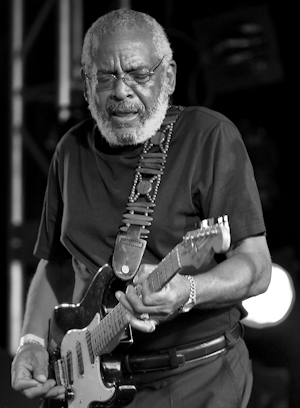 Alan:
What were your first musical memories growing up in Virginia, USA?
Alan:
What were your first musical memories growing up in Virginia, USA?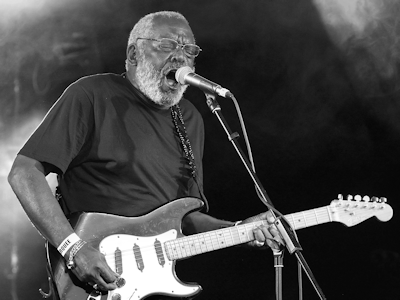
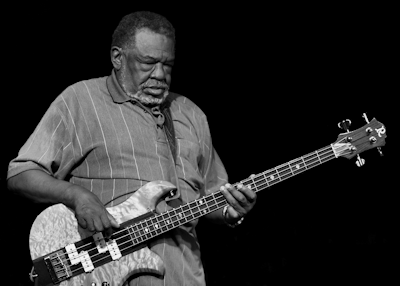 Sherman:
Yes, on Speaking in Tongues and Feed My Soul.
Sherman:
Yes, on Speaking in Tongues and Feed My Soul.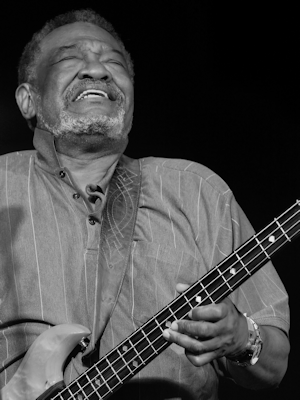 Alan:
Your music has been described as “utterly uncategorisable”. How
would you describe it?
Alan:
Your music has been described as “utterly uncategorisable”. How
would you describe it?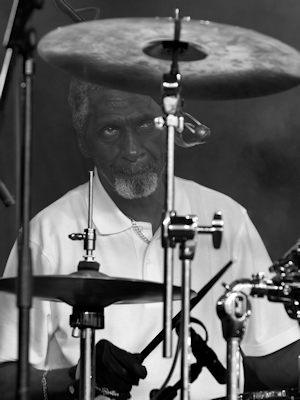 Popsy:
These guys got a lot of Mercedes and houses and boats, so we got to keep
working. I want to retire but we gotta keep working.
Popsy:
These guys got a lot of Mercedes and houses and boats, so we got to keep
working. I want to retire but we gotta keep working.